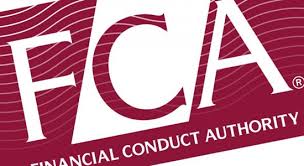

Not quite! Perhaps a bit more boring, but probably as controversial.
The Mortgage Market Review (MMR) is a comprehensive review of the mortgage market, which started with a FSA Discussion Paper in 2009 and culminated in a Policy Statement and final rules in October 2012 and implementation of 26 April 2014.
There has been some reports that due to changes to be implemented that Tens of thousands of borrowers could be turned down for mortgages because they are deemed to spend too much on pets, eating out or other luxuries and might have to cut back if interest rates jumped, a banking chief has warned.
Borrowers who would be approved for a mortgage today could be rejected by lenders when stricter “affordability” rules are imposed by the regulator in April, according to the boss of Ipswich Building Society.
Paul Winter, chief executive of Ipswich Building Society Ipswich, said “this is the level of rejection currently anticipated within the mortgage industry. If such projections are correct, he warned, they could “kill the housing recovery stone dead” and hold back wider economic revival. Mr Winter said: “There is likely to be a shortage of finance available in April, May and June, which will bring a halt to the market at a time when it should be kicking off in earnest.”
What is the background to this?
The MMR set out the case for reforming the mortgage market to ensure it is sustainable and works better for consumers. The tough new rules by the City regulator’s are designed to ensure borrowers are issued with mortgages they can afford. It had become clear by the height of the market in 2007, that, while the mortgage market had worked well for many people, it had been a cause of severe hardship for others. The regulatory framework in place at the time had proved to be ineffective in constraining particularly high-risk lending and borrowing.
The MMR package of reforms is aimed at ensuring the continued access to mortgages for the great majority of customers who can afford it, while preventing a return to the poor practices that we saw in the past.
As well as verifying every customer’s income, banks and building societies are preparing new detailed affordability questionnaires to ascertain potential borrowers’ spending habits. This will include whether the customer gambles, has taken an expensive loan in the past, regularity of visits to restaurants and whether the family has pets or expensive hobbies.
Lenders say this will provide greater insight into whether a borrower can manage repayments. In addition, they will apply more rigorous “stress tests” to ensure borrowers won’t default when interest rates rise.
The majority of the MMR changes come into effect on 26 April 2014. Those that will be most relevant are:
For Brokers:
- The removal of the non-advised sales process.
- Most interactive sales (e.g. face to face or telephone) to be
advised. - An ‘execution only’ sales process for non-interactive sales
(internet and postal). - Every seller required to hold a relevant mortgage qualification.
For lenders
- Lenders will be fully responsible for assessing whether the customer can afford the loan, and they will have to verify the customer’s
income. They can still choose to use intermediaries in this process, but lenders will remain responsible. - Lenders will still be allowed to grant interest-only loans, but only where there is a credible strategy for repaying the capital.
- There are transitional provisions in the MMR that allow lenders to provide a new mortgage or deal to customers with existing loans who may
not meet the new MMR requirements for the loan. The borrowing will not be able to exceed the amount of their current loan, unless funding is
required for essential repairs. The decision on whether or not to lend in these cases will remain with the lender.
Just this week three lenders have announced their new requirements including the Coventry Building Society who will use figures from the Office of National Statistics (ONS) in their affordability checks. Accord Mortgages will need to know if you intend to take out any form of finance in the future, and this will have to be disclosed at application, they will also use any ground or service charges you have to pay in its affordability calculation. Sales particulars, bank statements or a solicitor’s letter will be required as proof of monthly payment.
Nationwide also confirmed changes to affordability checks which include questions around dependents, a client’s job and details of monthly travel expenditure. It also requires new proofs to supplement the application.
All in all there are big changes due, which in principle are there for the right reasons and already we have experienced some of the onerous questions for on-going applications that will complete after April and there will be a lot of frustration ahead for brokers and their clients.
